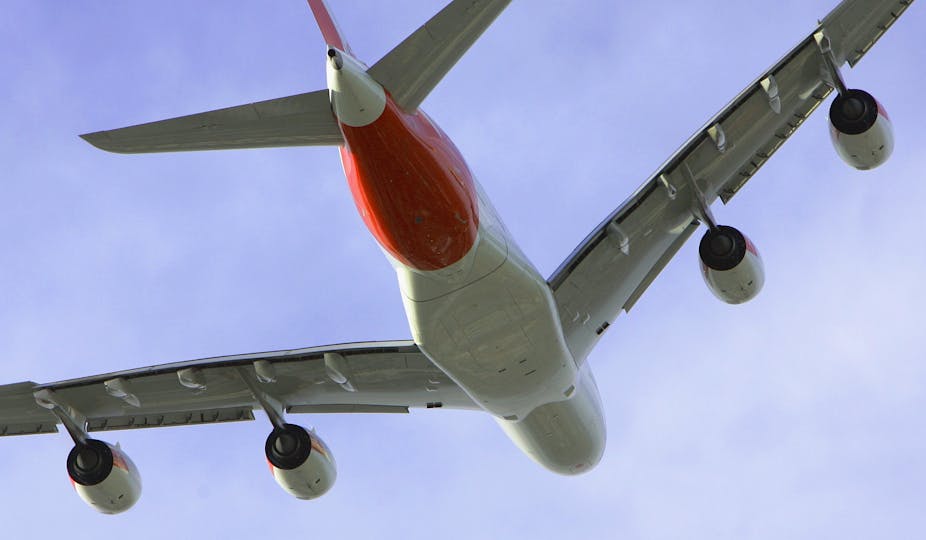Air travel is considered to be one of the most energy-intensive industries in the world, and fastest-growing emissions contributors.
But Australia could have a flourishing bio-derived aviation fuels industry within 20 years, according to CSIRO’s Paul Graham.
One of the major recommendations of the newly released CSIRO’s Flight path to Sustainable Aviation - in collaboration with the region’s major aviation industry players - is the use of bio-derived jet fuel from sources such urban waste, crop stubble, forest residue such as bark, sawdust and pulpwood, bagasse and algae.
The report says a sustainable aviation industry could cut greenhouse gas emissions by 17%, generate more than 12,000 jobs and reduce Australia’s reliance on aviation fuel imports by $2 billion per annum over the next 20 years.
Just what is the Australian aviation industry’s environmental footprint and how does it compare to other energy-intensive industries?
Globally, and the same is the case in this region, the aviation industry contributes about 2% of greenhouse gases. That is relatively small, but you’ve got to put it in the context that they are growing extremely fast. In this region, there has been 6% historically year-on-year growth in aviation travel.
A few years ago we were looking at that continuing on indefinitely because aviation has become affordable to much larger group of people – and that’s expanding worldwide.
Really, there wasn’t anything on the horizon for reducing emissions other than the usual efficiency gains from lighter aircraft and better air traffic management - and those things have been able to deliver quite a lot of fuel savings and will continue to do so - but there was nothing on the horizon to stabilise this industry’s emissions and even reduce them.
A few years ago it become apparent that some refining technologies in the US and Europe had come on-stream and were able to produce a jet fuel that is almost identical to the jet fuel they are using today, so they don’t have to radically modify planes.
Initially there were some test flights and engine testing through commercial airlines like Virgin, Continental and Japan Airlines.
The US Airforce has played a reasonably big role in this area as well because they’ve taken the view that it is strategically important to have fuel security for their military supply lines.
They have recently just put out some of the first relatively small tenders for volumes for suppliers for bio-derived jet fuel.
This is still very much a fledgling industry though, isn’t it?
We’re (Australia) at a standing start at the moment. There is really nowhere in the world that has any large volumes of bio-derived jetfuel.
We’ve done a reasonable high level assessment of Australia in this report and we’ve concluded that sustainable volumes are there.
Now it’s a matter for the entrepreneurs and airlines nailing this down even further. Qantas has said they are quite interested in urban waste and have also said they want to work with algal producers in the long term to get supplies from that source eventually.
What government support is needed to nurture this fledgling industry?
We’re looking to the government to set out an alternative fuel strategy for Australia and we know they’re working on that at the moment as part of the Energy White Paper process.
The use of bio-derived fuels could be considered quite controversial, especially if they replace food crops.
We were very conscious of this issue. The airlines that have commissioned this report have all signed up to principles of sustainability, meaning they will not impact on biodversity and food security.
What we’re calling for is the government to help set up those standards so the industry has a clear direction for the way it it needs to develop and what standards it needs to meet to claim its product is sustainable.
So will this help us feel not so guilty about flying?
I think that’s true. Up until a few years ago we were looking at the prospect of saying there is not much we can do to reduce emissions from aviation. Now we’re looking at a much brighter future where we can address greenhouse gas emissions and have a viable sustainable aviation industry. So that is a very positive outcome.

